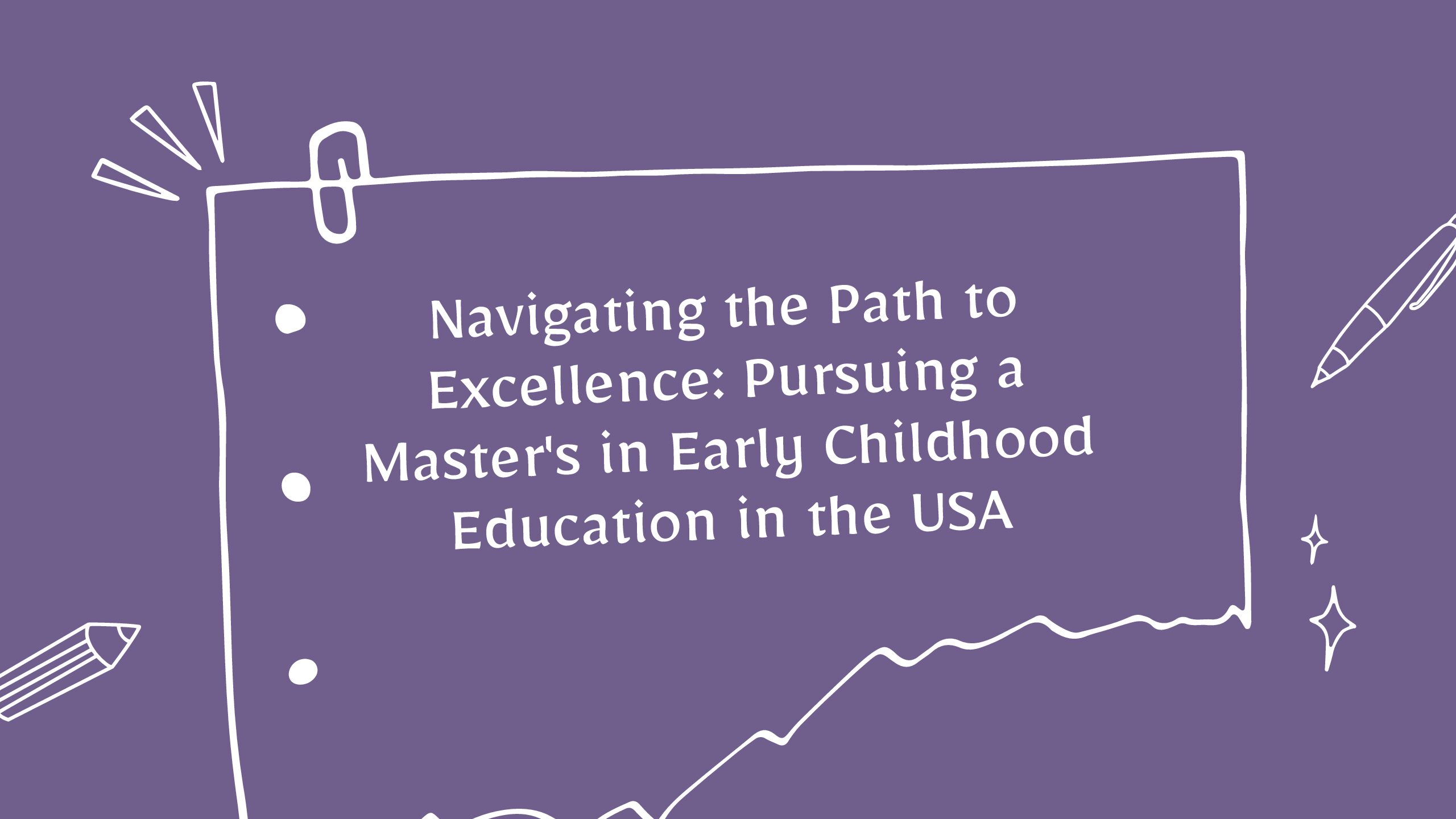Introduction masters in early childhood education in usa:
Early childhood education lays the foundation for a child’s lifelong learning journey. In the United States, the importance of quality education during these formative years has been increasingly recognized, leading to a growing demand for skilled professionals in the field. Pursuing a Master’s in Early Childhood Education (ECE) in the USA offers an enriching opportunity to delve deeper into this critical field and make a lasting impact on young minds.
1: Understanding Early Childhood Education
To comprehend the significance of a Master’s in Early Childhood Education, it’s essential to grasp the fundamentals of ECE. This chapter explores the developmental milestones, pedagogical approaches, and the role of educators in shaping the cognitive, social, and emotional growth of young children. By understanding the theories and practices underpinning ECE, aspiring educators can better appreciate the complexities and nuances of the field.
2: The Demand for Early Childhood Educators
As awareness about the importance of early childhood education grows, so does the demand for qualified professionals. This chapter delves into the evolving landscape of the ECE job market in the USA, highlighting the increasing need for skilled educators in various settings, including preschools, kindergartens, and early intervention programs. Additionally, it explores the career opportunities and potential for advancement available to individuals with a Master’s degree in ECE.
3: Choosing the Right Program
With a multitude of options available, selecting the right Master’s program in Early Childhood Education can be overwhelming. This chapter provides guidance on factors to consider when choosing a program, such as accreditation, curriculum structure, faculty expertise, and practical experiences offered. By carefully evaluating these aspects, prospective students can ensure they select a program that aligns with their career goals and educational aspirations.
4: Navigating the Application Process
Once the decision to pursue a Master’s in ECE is made, the next step is navigating the application process. This chapter offers valuable insights into preparing application materials, including transcripts, letters of recommendation, and personal statements. Additionally, it provides tips for acing admissions interviews and navigating financial aid options to make graduate education more accessible.
5: Mastering the Curriculum
A Master’s in Early Childhood Education curriculum encompasses a blend of theoretical coursework and hands-on experiences designed to prepare educators for the complexities of the field. This chapter explores common course offerings, such as child development, curriculum design, assessment techniques, and classroom management strategies. It also emphasizes the importance of integrating research-based practices into teaching methodologies to promote optimal learning outcomes for young children.
6: Engaging in Field Experiences
Field experiences are a cornerstone of graduate education in ECE, providing students with opportunities to apply theoretical knowledge in real-world settings. This chapter discusses the various types of field experiences, including practicum placements, internships, and student teaching opportunities. It also highlights the benefits of collaborating with experienced mentor teachers and engaging in reflective practices to enhance professional growth and development.

7: Embracing Diversity and Inclusion
In a diverse society like the USA, early childhood educators must be equipped to embrace and celebrate differences among their students. This chapter explores strategies for creating inclusive learning environments that honor the cultural, linguistic, and developmental diversity of young learners. It also emphasizes the importance of fostering positive relationships with families and communities to support children’s holistic development.
8: Leveraging Technology in Early Childhood Education
Technology has become an integral part of modern education, and early childhood settings are no exception. This chapter examines the role of technology in enhancing teaching and learning experiences for young children, while also addressing potential concerns and challenges. It explores innovative tools and resources that can be integrated into the ECE curriculum to promote interactive learning and digital literacy skills.
9: Advancing Professional Development
Continuous professional development is essential for early childhood educators to stay abreast of emerging trends and best practices in the field. This chapter explores opportunities for ongoing learning and professional growth, such as attending conferences, pursuing specialized certifications, and engaging in research and publication endeavors. It also emphasizes the importance of networking and collaboration within the ECE community to foster a culture of lifelong learning and excellence.

Conclusion:
A Master’s in Early Childhood Education empowers educators to make a meaningful difference in the lives of young children and their families. By understanding the foundational principles of ECE, navigating the application process, mastering the curriculum, engaging in field experiences, embracing diversity and inclusion, leveraging technology, and advancing professional development, graduates can embark on fulfilling careers dedicated to nurturing the next generation of learners. As the demand for skilled early childhood educators continues to grow, pursuing a Master’s in ECE in the USA offers a rewarding pathway to excellence in the field.
